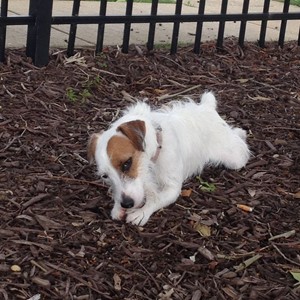When the seasons change, so do aspects of our routine or lifestyle, and the same is true for our pets. In fall, the weather becomes cooler and more comfortable, and you and your pet may find yourselves spending more time outside on long walks or jogs. Autumn also means changes to plant and flower growth, sending new allergens into the environment and mushrooms and fungus into your walking path.
Autumn may also signal necessary changes to your pet’s diet, and it may be time for his or her annual visit to the vet. If you have children heading back to school during this time, it can mean new supplies or a change in schedule for your family that can impact your pet’s well-being.
Change is normal and natural, but as pet owners, it’s up to us to help ease our furry family members through times of transition, no matter how positive it may be. This fall, consider the ways your pet’s health might be impacted by the new season, and use these simple tips to help keep your four-legged family member feeling happy and healthy all year long.
Tick Season
While most people don’t associate fall and winter with ticks, it’s important to not let your guard down this season. Ticks are still around in abundance in the fall in Coastal Virginia, meaning you’ll need to stay on top of your pet’s flea and tick medicine and check them vigilantly after going for long walks or hikes in the woods or tall grass.
Mushroom Madness
Fungus growth flourishes in fall, and while most mushrooms tend to be harmless, many of them can be toxic and dangerous if ingested by your pet. While out on walks with your dog, watch carefully for mushrooms and toadstools, and keep your pet out of their path at all times. It’s important to walk with your pet leashed to help you control where he goes and what he has access to. If he does ingest a mushroom before you can prevent it, contact your vet right away.
Diet & Exercise
Not all pets need adjustments to their diets when the seasons change, but some do. If your pet is considerably more active during the fall, or has experienced any major health changes in the last few months, it may be worth evaluating his diet and consulting his vet to determine whether changes need to be made.
Decorations & School Supplies
Fall brings with it holiday decorating, Halloween costumes and all the school supplies. While many of these items are non-toxic to your pet, it’s important to watch to make sure that your pet doesn’t ingest irregularly shaped objects, small gourds or pumpkins or other decorative items that can be harmful and even fatal. If you know you have a curious pet, keep school supplies and decorative items locked up and out of paw’s reach. Any decorations that you do keep out should be either inaccessible to your pet or completely safe for them.
Antifreeze & Rodenticides
Cold weather months bring out different products that can be harmful and dangerous to your pet, specifically antifreeze and various rodenticides. Antifreeze is particularly harmful to pets, since it has a sweet flavor to it that can attract cats and dogs. Many rodenticides can also be toxic and even fatal if consumed by your pets, and you’ll need to be mindful about how you use these and/or store them.


